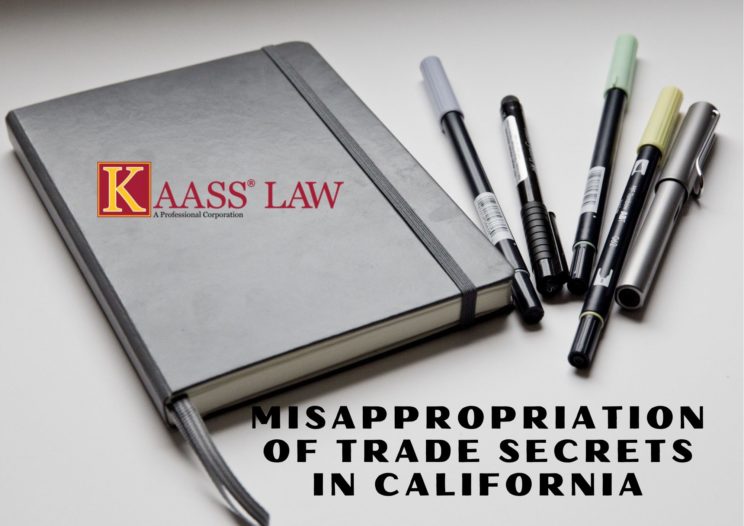According to Civil Code Section 3426.1(b)(1) under California law, “misappropriation ” refers to the acquisition of a trade secret by а person who knows or has reason to know that the trade secret was acquired by improper means, such as bribery, theft, misrepresentation, breach or inducement of a breach of duty to maintain secrecy.
According to Civil Code Section 3426.1(b)(2) misappropriation also includes the disclosure or use of a trade secret without consent by a person who used improper means to acquire knowledge of the trade secret.
Elements the Plaintiff Must Establish to Prove Misappropriation of Trade Secrets in California
According to CACI 4401 to establish the claim of trade misappropriation the plaintiff must be able to establish all five elements:
- Plaintiff owned or was a licensee of the trade secret
- The information was a trade secret at the time of the misappropriation
- The defendant improperly acquired, used or disclosed the trade secret
- The plaintiff was harmed or the defendant was unjustly enriched
- The defendant’s acquisition, use or disclosure was a substantial factor in causing harm to the defendant or to be unjustly enriched.
What Is Considered to Be a Trade Secret?
According to CACI 4402 each of the following elements must be present in a “trade secret”:
- The trade secret must consist of information. Trade secret law protects different types of information, but the most common examples fall under two categories: business information and technical information. The information that is protected and recognized as a trade secret can include the following:
-
- Business plans
- Corporate agendas and minutes
- Bid specifications
- Customer lists
- Spreadsheets
- The information must derive actual or potential economic value from the fact that it is secret.
- To be considered a trade secret, the information can’t be generally known to the public, industry competitors, or others who could realize economic value from its use or disclosure.
- The information must be treated as a secret, and the owner must exercise reasonable efforts to maintain its secrecy.
Trade Secret Ownership in California
California Labor Code Section 2860 expressly establish that the employer owns trade secrets created by an employee. Though, an employer wouldn’t own trade secrets created on an employee’s personal time without the use of employer’s materials.
Statute Of Limitations for Misappropriation of Trade Secrets in California
A plaintiff must bring an action for misappropriation within three years after the misappropriation is discovered or by the exercise of reasonable diligence should have been discovered.
Civil Remedies for Misappropriation of Trade Secrets
In case of a successful claim trade secret owners are entitled to:
- Obtain an injunction prohibiting the actual or threatened misappropriation
- Recover compensatory damages for actual loss caused by the misappropriation
- Recover compensatory damages for the defendant’s unfair enrichment, to the amount not covered by the calculation of damages for actual loss
- Obtain payment from the defendant of a reasonable royalty, if neither the damages nor the unjust enrichment caused by the misappropriation are provable
- Recover punitive damages not exceeding twice the compensatory damages award if the misappropriation was willful and malicious
- Recover attorneys’ fees

